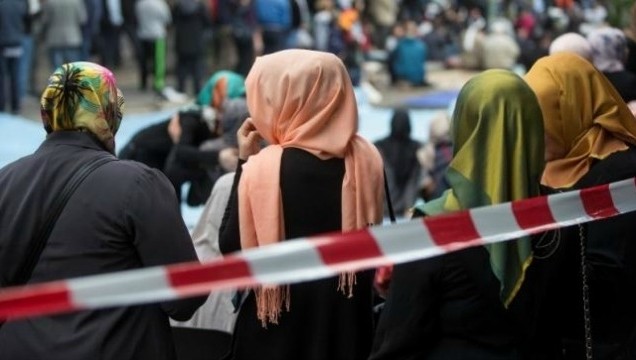A European Court of Justice (ECJ) ruling, allowing employers to ban their workers from wearing any kind of “political, philosophical or religious sign”, will not directly apply to the UK.
The ECJ ruled it would not be considered direct discrimination if an employer banned its workers from wearing religious and political symbols, such as an Islamic headscarf.
While acknowledging such a ban could constitute indirect discrimination on some instances, the court ruled that such discrimination would be fair if “objectively justified by a legitimate aim” such as a company wanting to adopt a neutral policy.
However, experts have warned if UK employers were to adopt such a ban, they would likely face a barrage of discrimination claims.
Employers wishing to ban their employees from showing any kind of religious or political affiliation would have to appeal to Europe, and that would take years and be impractical until the UK leaves the EU.
“There is a danger that many UK employers might misread the headlines around this ruling and feel that it is legally OK to ban the wearing of headscarves by those in public-facing roles, provided they impose a neutral and across-the-board ban on all employees,” said Juliet Carp, vice-chairman of the Employment Lawyers Association and a partner at Kingsley Napley, speaking to the Times.
Although the ECJ claimed the ban is only indirect discrimination and therefore potentially legitimate, UK tribunals would be unlikely to rule in its favour, especially given the UK’s tolerance and diversity, she added.
“In the UK we have accepted differences — for example Sikh headgear on construction sites and children carrying ceremonial Sikh knives into schools — we tend to be more adaptable.”
Discussions around religious attire were were prompted by the case of a receptionist who was fired for wearing a headscarf to work at the security company, G4S in Belgium.
The court reiterated: “G4S’s rules prohibited any manifestation of such beliefs without distinction”, and were therefore not directly discriminatory. An employer’s desire to project an image of neutrality towards both its public and private sector customers is legitimate”
The court confirmed that the ban also extends to other religious insignia such as crucifixes, skullcaps and turbans.
However, the rulings stipulated that the ban could not be based on an individual’s subjective considerations, for example customer preferences.
“The willingness of an employer to take account of the wishes of a customer no longer to have the services of that employer provided by a worker wearing an Islamic headscarf cannot be considered a genuine and determining occupational requirement,” the court said.
Conservative candidate in the French presidential election, François Fillon, has spoken out in defence of the decision. He deemed the ruling as “an immense relief” that would lead to “social peace.”
The United Sikhs advocacy expressed concerns with the decisions made, saying they were “disturbing” with the ruling disregarding fundamental human rights.”
Mejindarpal Kaur, the group’s international legal director, said that “although the ECJ only allowed for rules with legitimate aims, we fear that employers will treat it as a licence to discriminate at the point of hire”.
John Dalhuisen, director of Amnesty International’s Europe and Central Asia programme, said the ECJ’s decision gave “greater leeway to employers to discriminate against women and men on the grounds of religious belief”.
“The court did say that employers are not at liberty to pander to the prejudices of their clients. But by ruling that company policies can prohibit religious symbols on the grounds of neutrality, they have opened a backdoor to precisely such prejudice.”
























